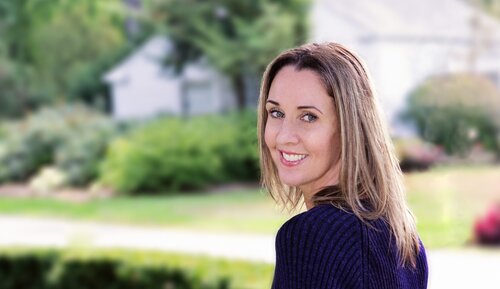
To say debut author Natalie Jenner loves everything Jane Austen is probably an understatement. With excellent critical reviews Natalie’s novel, The Jane Austen Society, underscores the human spirit and detailed characters that the enduring English novelist Jane Austen would certainly appreciate.
When we step into Jane Austen’s world, we can work through our own understanding of ourselves and others, and of the human condition in general. -Natalie Jenner
It’s hard to believe Jane Austen was, at first, published anonymously. She authored six full-length novels, died at 41, yet her stories have engaged readers for two centuries, prompting popular movies, plays, television adaptations and academic studies.
Natalie’s own story motivated her to create this captivating novel about saving Jane Austen’s home and her legacy. That intrigued me to want to get in touch with her to find out more about why this literary superstar continues to inspire her and so many…
EYE: Here we are in the midst of uncertain times with the pandemic, civil unrest, financial challenges, etc. You’ve said books both “comfort and connect us.” Can they help now?
NATALIE: Books are the one art form that allows us to really get inside someone else’s consciousness, building both empathy and understanding, but also providing an interesting respite from our own minds and troubles.
I think this unique power of books is what people really need right now: You can read to understand your own life and world better, or you can read to escape it. Frankly, I think writers write for exactly the same reasons.
EYE: When you wrote The Jane Austen Society you were going through your own personal and professional uncertainties. What was going on?
NATALIE: Four months after I realized a lifelong dream of opening a bookshop, my husband was diagnosed with a very rare, incurable and genetic form of lung disease called IPF.
Professionally, I had to spend those months both building up the store and dismantling it (emotionally and stock-wise) at the exact same time.
I then took what I now call my “quiet year” in which my greatest solace came from reading, baking (I made a lot of scones) and travelling with my family.
Just before I decided to take a stab at writing another novel (I have five unpublished ones from my thirties firmly locked away in a drawer), my husband was approved for some innovative and fairly new treatments which seem to have slowed down the progression of his lung disease, buying us time that we are trying very hard to stay in the moment to enjoy.
EYE: You’ve said that you were always an Austen fan. What was it about her that you gravitated to, that helped you move through the difficult time and ultimately write your novel?
NATALIE: I am always, first and foremost, wanting to return to the language. With Austen in particular, I find her writing style to be very calming and soothing, almost like classical music in its use of rhythm, pauses, repetition and placement.
Filmed during Jane Austen Bicentenary/2017
Austen also creates a world that is so self-contained and foreign to us that it works as an escape, and yet is just similar enough to capture—through her brilliant use of characterization—every human quirk and foible that we can recognize in people today.
And finally, I am always a sucker for a happy ending, and Austen is notorious for handing out those—although she really makes her heroines hustle for it right until the very end.
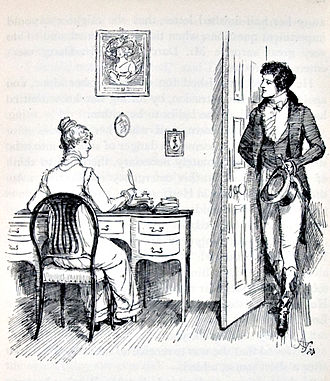
Wikipedia Commons
EYE: Do you have a favorite Austen character?
NATALIE: Usually I find it very hard to answer to any favourites when it comes to Austen, but on this one point I can wholeheartedly say, Elizabeth Bennet from Pride and Prejudice. Elizabeth has a confidence that far outstrips her age of twenty and her life circumstances.
She owns everything about herself, but gets things wrong just often enough to still be relatable. I don’t envy Charlotte Lucas in Pride and Prejudice much, but I envy her the friendship of someone as fun, sassy and composed as Elizabeth.
EYE: Would you say that rereading Jane Austen, doing the research for this book and having retraced some of her footsteps have changed your perspective on your own life?
NATALIE: Yes, but probably not in the way one would guess. I was always very aware of Austen’s works and personal life. I had made the trip to Chawton many times before the one in the fall of 2017 that directly inspired my book.
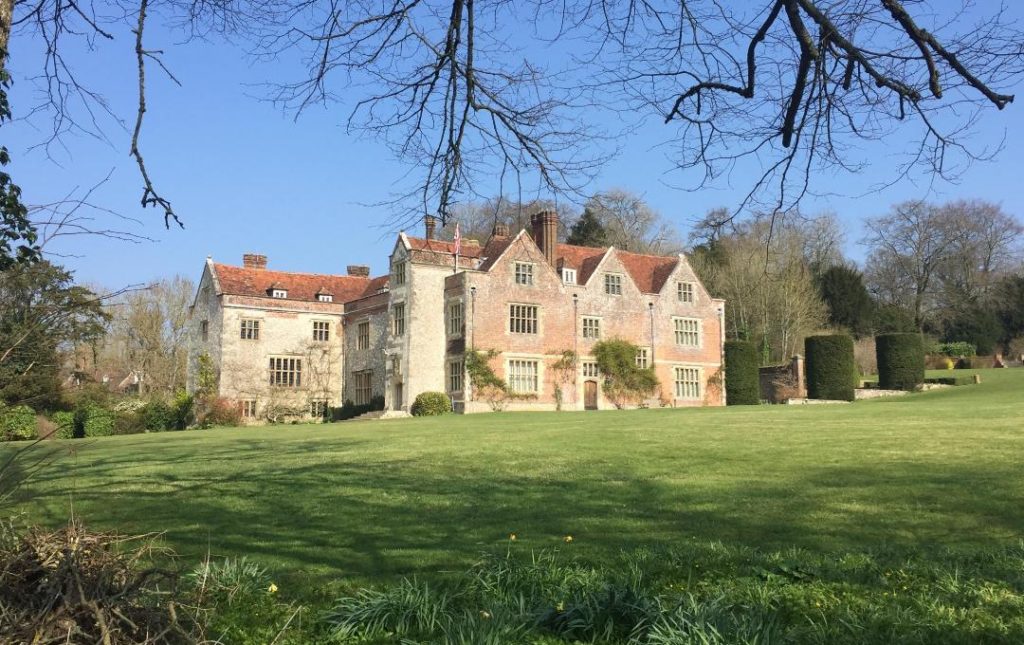
Photo: Natalie Jenner
I had also already read many of the secondary volumes on Austen’s life that I ended up rereading that year. What was different this time, and dramatically stretched my perspective, was being in a state of trauma and anticipatory grief myself, over my husband being told that the majority of patients with his disease pass away within two to three years of diagnosis.
This time when I came back to the world of Austen, I felt a very strange, almost cellular connection to her. I am getting emotional just writing this now, but it was like she had always been waiting for me to catch up to her own state of ill health and uncertainty.
I could sense how grief, thoughts of legacy and lack of time were running through her later works, especially Persuasion. I honestly felt a kinship with her that must have fueled my eventual writing—the book that came out of that affinity is, to me, the book of my heart and one that I now see I was meant to write.
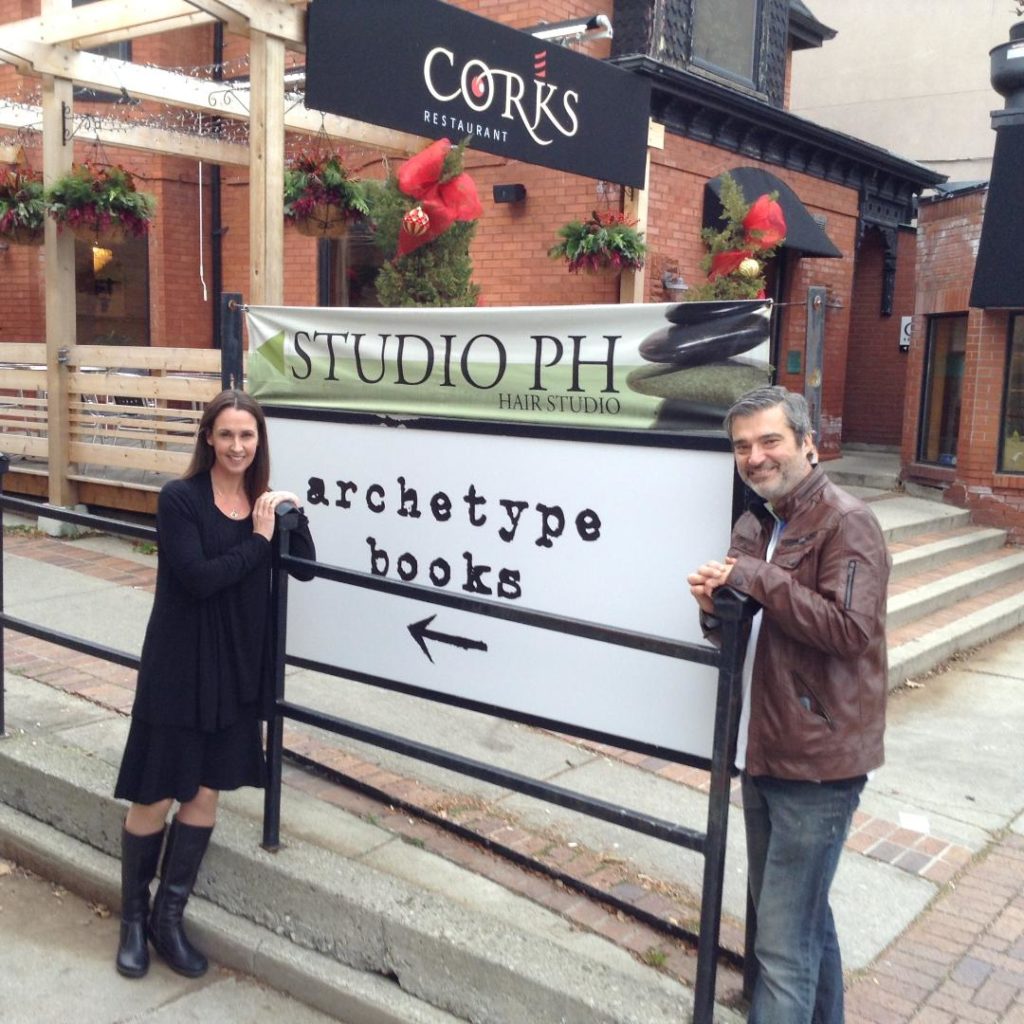
Photo: Natalie Jenner
EYE: You opened your own bookshop at that time but then had to close. What is it about bookstores that intrigue you?
NATALIE: I love everything about bookshops; the smell, the quaintness, how they provide an acceptable way to escape or hide from others (might I say, a way to get lost), the sense of so many stories yet to be discovered, and the quiet yet bustling pace.
I would love to open a bookshop again one day, ideally this time joined to a café. I really love a busy bookshop, and I love when the space allows for a well-curated new book, as well as a latté or an amazing book-signing event to boot.
EYE: What made you decide to write The Jane Austen Society at this particular time in 2018?
NATALIE: When my husband’s lung decline stabilized in spring 2018, we were able to adjust to a new normal for the first time in nearly two years. Something about this new normal gave me a much-needed dose of hope as well, which in turn seemed to energize me.
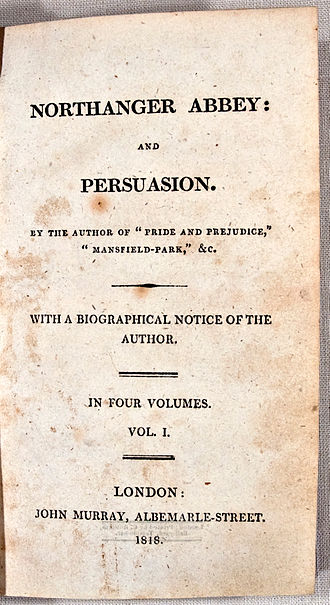
Wikipedia Commons
I don’t think it a coincidence that a few months after this period of stability began, I felt like writing again for the first time in years. I didn’t know at first that the book was going to be about Jane Austen—I was thinking very generally about a group of characters trying to salvage an old British estate house.
But somehow the previous year of reading books by and about her, and taking a bucket-list trip to England to visit the town where she lived, all culminated in my creative mind.
I think the final fuse to light my imagination was attending my very first Jane Austen conference in Philadelphia the week I turned fifty.
I came home from that trip so affected by the lectures I heard, particularly their focus on the theme of grief in Persuasion. I love that I had no idea then that these were the reasons why I ended up writing this book, but now looking back I can connect all those dots and marvel at the creative subconscious mind always spinning away beneath our more mundane daily lives.
EYE: Without giving away too much of the story, your characters, each with their own struggles, come together to save Austen’s home and her legacy. Is any one of your characters a personal favorite?
NATALIE: I love all eight of the main characters in my book, but while I was writing I remember having a huge crush on Dr. Gray.
But my softest spot is for the sixteen-year-old house girl Evie, who reminds me so much of myself as a teenager, with my dreams of one day becoming a lawyer and a writer.
EYE: Do you think your story resonates in a different way in these times than when you wrote it?
NATALIE: For me it resonates exactly the same, which I find interesting and not a little eerie. I wrote this book after two full years of medically advocating and determining the best course of treatment for my husband’s lungs.
At first I spent a lot of time alone reading, trying to distract myself from the constant uncertainty we were facing, and turtled a bit from my social circle. But eventually I started to re-engage with life—sometimes in the smallest of ways, and I mean really small at first, like picking out a decadent three-layer cake at the bakery to bring home as a treat.
So, in a way, I feel like I got a four-year head-start on much of the rest of the world, in coming to grips with feeling such ominous omnipresent fear, and yet still putting one step forward and engaging with life, no matter on how small a level.
The one thing I myself learned is that if you don’t keep moving forward, you aren’t living. If I hadn’t taken the time for myself to heal, or the bucket-list trip to England, or tried writing again, or sent that query off to literary agents in NYC on a whim, none of this amazing publication journey would have happened to me.
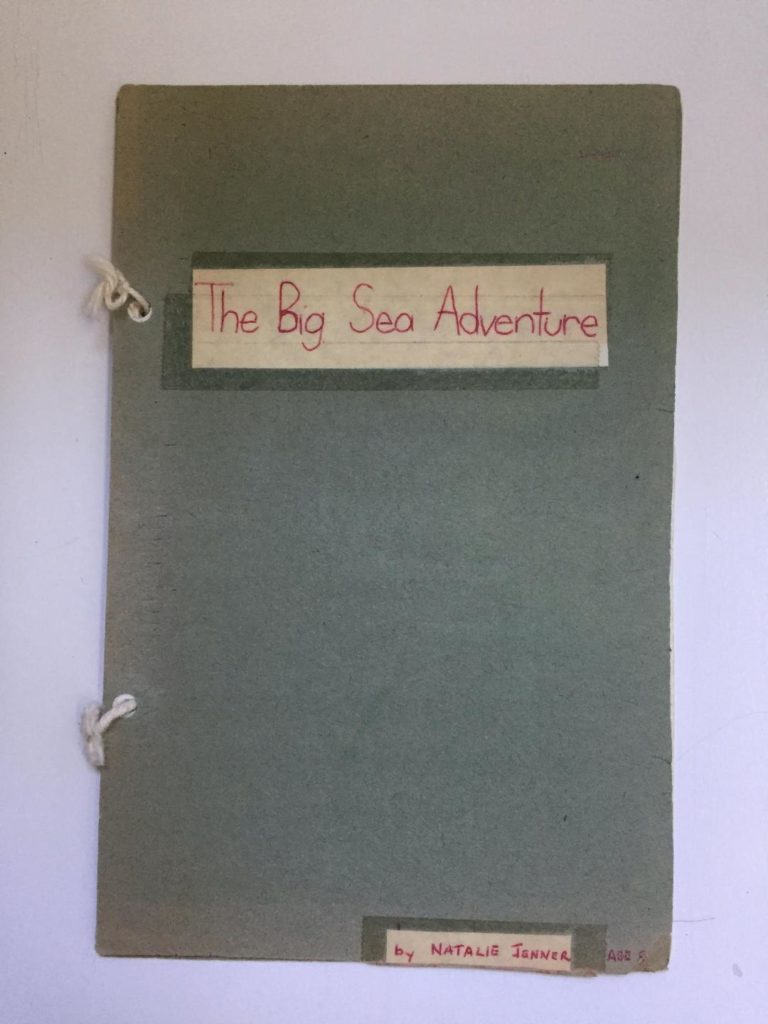
EYE: Has writing always been something you loved?
NATALIE: My mother says I wanted to be a writer before I could even read; I loved books that much. She put together my first book for me when I was eight, The Big Sea Adventure, with a front and back cover held together by string and those little seals for punched holes in the paper.
And my father would always come back from business trips with books for me, including each of the seven books in the Anne of Green Gables series and a wonderful Austen anthology, all of which I still own and treasure.
The other key formative influence on my writing has been my English teachers and university professors. They are the ones whose encouragement really carries weight and powers you through the years of rejection.
EYE: What was your biggest hurdle in being a first-time author?
NATALIE: For me, it was learning to be patient with what can be a year-and-a-half-long journey to publication. I also have a background in both practicing corporate law and sales.
I had to learn to really trust the powers-that-be on the best business and marketing decisions for my book. They really know what they are doing, which also helps me understand the earlier years of hundreds of rejections!
EYE: What advice do you have for those also thinking of taking the leap?
NATALIE: My biggest advice is always the same: to write the one story that you alone absolutely most need to tell (not the idea or hook or genre that you think will sell, but the one that grabs you emotionally by the throat and just won’t let go), because that is the story that you alone can write, and that will help you stand out in what is admittedly a very crowded and gate-keeping industry.
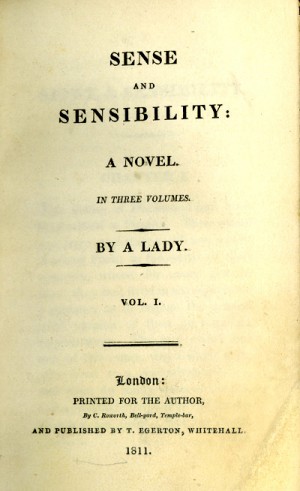
Wikipedia Commons
EYE: Do you have a final “Austen-ian” quote for TWE readers?
NATALIE: “Know your own happiness. You want nothing but patience—or give it a more fascinating name, call it hope.” – Sense and Sensibility, Chapter 19
This particular quote has snuck up on me in middle age. Only with the passage of time have I myself come to appreciate how critical hope is to all our lives.
And the concept of understanding and committing to your “own happiness”—not the one that parents, or friends, or society may try to school us in—is so essential to all of Austen heroine’s journeys, that it could be the consummate tag line for each of her books.
EYE: Thank you, Natalie, for your time, your insights and a wonderful book! Congratulations on a terrific debut! TWE looks forward to your next chapters!
For more about Natalie Jenner, check out:
- Website: nataliejenner.com
- Twitter: @NatalieMJenner
- Instagram: authornataliejenner
More popular authors on TWE:
Some links in this post may be “affiliate links,” meaning TWE receives a small commission (at no extra cost to you) if you use that link to make a purchase.
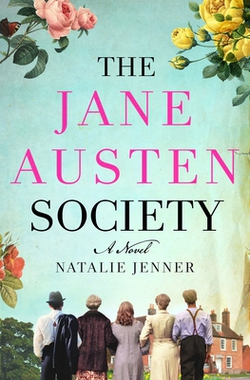
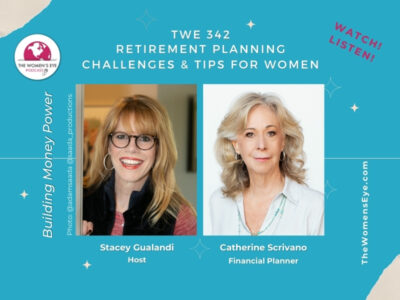


Leave a Reply